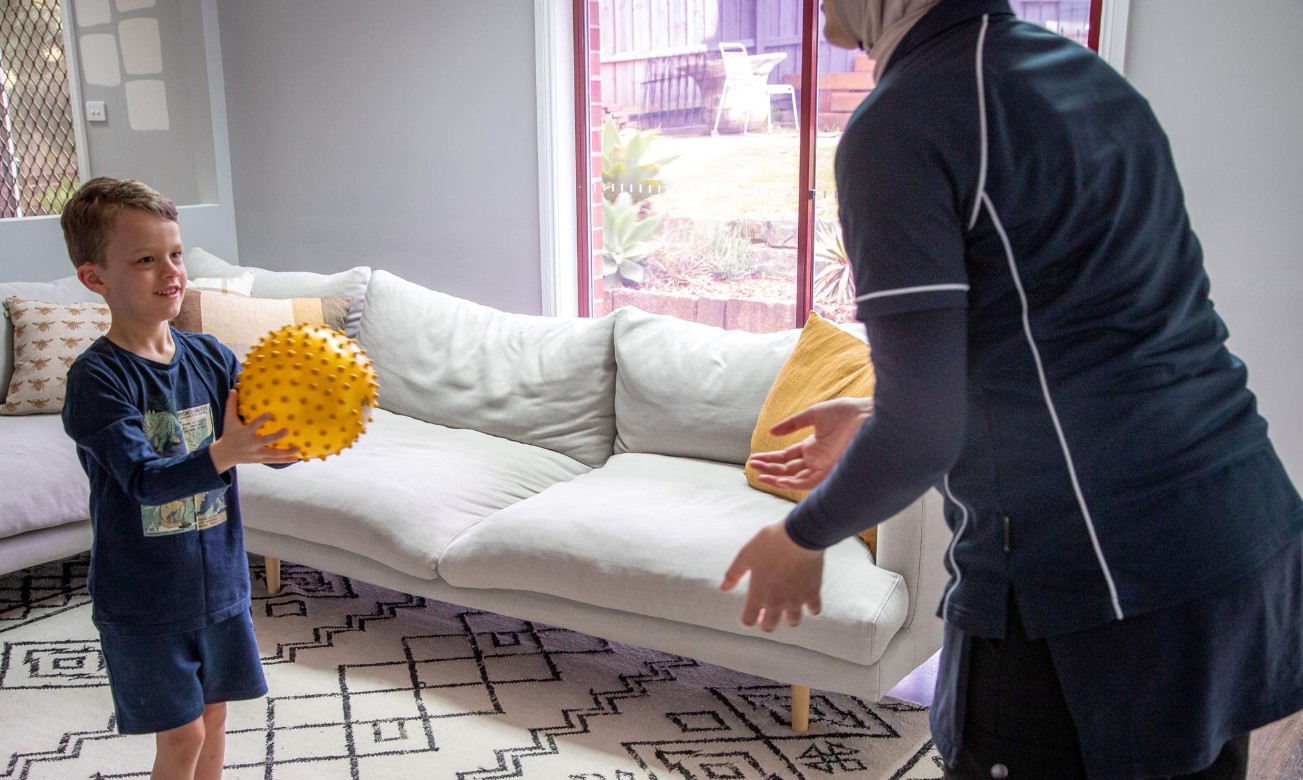How to Choose the Right Paediatric Physio for your Child
When you’re searching for therapy for your child, it’s important to find a qualified, experienced paediatric physiotherapist who you feel comfortable with. Here, we cover eight things to consider when choosing a physiotherapy provider for your child.
1. Their Qualifications and Registration
In Australia, physiotherapists have to be registered with the Australian Health Practitioner Regulation Agency (Ahpra) to practise their profession. Ahpra exists to keep the public safe by ensuring registered health practitioners are suitably qualified and safe to practise. To achieve and maintain registration, physios must meet strict standards of education, continuing professional development, and professional conduct. You can verify a paediatric physiotherapist’s credentials on the Ahpra website. Click the ‘Look up a practitioner’ tab, enter the details, then press search.
2. Special Interest in Paediatric Physiotherapy
You might like to look for a physiotherapist who focuses on providing paediatric care. Working with children is different to providing therapy for adults. Early intervention focuses on optimising healthy development by tapping into the potential of growing minds and bodies. Some physios complete additional training to better understand children’s development and effective treatment approaches.
This training can involve anything from weekend courses and online study to post-graduate university qualifications. Physiotherapists who have achieved the highest level of expertise in paediatrics may be recognised as a Specialist Paediatric Physiotherapist as awarded by the Australian College of Physiotherapists. To attain this title, physiotherapists must complete rigorous training and examinations.
Within paediatric physiotherapy, practitioners may focus on specific areas of practice. For example, they may mostly see children with sporting injuries or work with children with disability. Keep this in mind when you’re choosing a paediatric physio.
3. Paediatric Experience
In addition to an interest in paediatric physiotherapy, you might like to ask about a practitioner’s experience working with children. For example, you could check whether they’ve supported children of a similar age, or with similar conditions or developmental challenges to those affecting your child. A highly experienced paediatric physiotherapist is more likely to have encountered children with a wide range of concerns and to have a toolkit of treatment approaches they can draw from. That said, a recent graduate can be highly motivated to apply their knowledge and skills in a field they are passionate about.
4. Communication and Rapport
If your child has a disability or developmental delay, you’ll probably be working with a physio from time to time over many years. Your physio will become part of the life of your child and family. They will see you at home and may also be involved in your child’s education and community settings. For all these reasons, it’s essential to find a paediatric physiotherapist you trust and feel comfortable with.
Good communication is key to building an effective therapeutic partnership. It’s also essential for the therapist to have good rapport with your child.
When you’re seeking a practitioner, here are a few things to look for:
- When you rang to make an enquiry, how did the person who answered your call respond? Were they friendly, helpful and easy to talk to?
- Did they listen to you carefully and answer your questions?
- Did the physio ask about your child’s concerns and goals?
- Did they seem to be caring, empathetic and knowledgeable?
- How well did they get along with and engage with your child?
- Did they explain what to expect during a physio session in a way you could easily understand?
5. Flexibility and Location
Most families lead busy lives, so you’ll want a service that fits your needs. Consider the location and availability of the paediatric physiotherapist. Some providers, like the team here at Active Ability, can come to you. This allows your child to receive physio support at a convenient location such as your home, a childcare centre or a local park. It’s a good idea to ask about the physio’s operating hours and flexibility to arrange appointments to suit your family’s schedule. It’s easier to be consistent when therapy is convenient, which will support the success of the therapy program.
6. Multidisciplinary Approach
Children with disability or developmental delays often have complex needs and benefit from support from various health professionals. This works best when the team of healthcare providers collaborate with each other and your family to help your child reach their goals. This is called a multidisciplinary approach.
Check if the paediatric physiotherapist will work closely with other healthcare professionals such as your GP or paediatrician. At Active Ability, we have accredited exercise physiologists and paediatric dietitians working alongside our physiotherapists to provide holistic support and optimise outcomes for our clients. We also communicate regularly with other health practitioners involved in your child’s care, such as NDIS support coordinators.
7. Family-centred Approach
A family-centred approach recognises the vital role a child’s family and caregivers play in their development. Therapy is most effective when it is regular and consistent, so formal and informal support people often need to be involved to deliver it. Therefore, look for a paediatric physiotherapist who embraces a family-centred care approach. For example, they should:
- involve you in the assessment and therapy process
- acknowledge and appreciate your role as a parent or carer
- seek your input for setting goals and making decisions about your child’s treatment
- provide education, support and guidance about your child’s therapy and progress
- train you to get involved in whatever ways you can, such as helping your child complete their exercise program.
8. Cost and Wait Times
The cost of a NDIS physiotherapist may not be the main deciding factor, but it is an important one, especially if your child will need a significant amount of therapy over the long term. It may be helpful to think about whether the cost of therapy represents good value for money. For example, you could ask how long therapy sessions are and whether the cost includes things like travel.
You should also consider how long you’ll have to wait to get an appointment. At Active Ability we don’t have a waiting list, so you can start paediatric physiotherapy as soon as you’re ready. Also, we do not charge for travel because we want you to get the best value from your NDIS funding.
How to find a Paediatric Physiotherapist near you.
Here are some ways to find a paediatric physio near you:
- Ask your paediatrician, GP or local area coordinator for a suggestion.
- Seek recommendations from other trusted sources, such as parents of children with disability.
- Do some online research for paediatric physiotherapists in your area.
- Use the Australian Physiotherapy Association’s ‘Find a physio’ function. This allows you to search for physios with a special interest in disability or paediatrics, and those who see people with NDIS funding.
Paediatric Physiotherapy with Active Ability
The team of paediatric physiotherapists at Active Ability are dedicated to helping children reach their goals. We focus on working with children with disability and developmental delays, providing support for kids with autism, neurological conditions, and intellectual disabilities.
Because every child is different, our physiotherapists tailor therapy plans to suit each one’s unique needs. To learn more about how we might be able to support your child and family, get in touch with our helpful team on (02) 9161 5887, hello@activeability.com.au or via our contact form.
Get in touch
hidden
Follow Us


